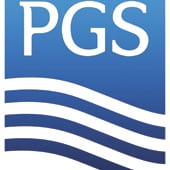
Norway 2019

General counsel | Petroleum Geo-Services


Lars Mysen
General counsel | Petroleum Geo-Services
What are the most important transactions and litigations that you have been involved in during the last two years?
During the recent years, we have been involved in several cross-jurisdictional patent disputes involving court proceedings before the courts in several jurisdictions. The seismic industry in which we operate is densely populated with patents held by the actors in this industry. Patent disputes arise from time to time which are both time consuming and resource demanding. On the transactional front, we have recently sold a high valued seismic vessel to a country’s state administration in Asia. This transaction involved setting up a joint venture among us and two other major industrial companies, as well as suite of various agreements governing vessel and equipment lease, joint venture shareholding, and service provision by the joint venture towards its client(s) and each joint venture participants’ back-to-back provision of the services to the joint venture.
In what ways do you see the in-house legal role evolving in your region over the next few years?
I see the in-house role in our region evolving to become closer to the business decision making of top management and at [senior] levels of the corporation. This entails that the in-house lawyers are taking an ever more active role in the business affairs of the company. A condition for this, or a consequence thereof, is that in-house lawyers develops a very commercial mindset enabling them to be a trusted adviser to the corporation at all levels, not only legal risk but also on commercial risk. Closing the gap between giving pure legal advice and assisting heavily on making business decisions might of course represent challenges for the lawyers’ as their traditional role in the outset is to give legal advice to decision makers.
What would you say are the unique qualities required to be successful as an in-house lawyer in your industry?
To be a successful in-house lawyer generally, a basic pre-requisite is to have in-depth knowledge about the relevant legal doctrine, laws, regulations, standards and expectations applying for the company’s operations. In addition, a successful in-house lawyer will – as mentioned above – have a very commercial mindset and always be able to take a risk-based approach. For our global but still small seismic industry specifically, understanding how our clients think, developing insights into industry practice, knowing both the supply- and value chain, understanding the competitive arena, and seeing the strengths and weaknesses of our competitors, are key success factors for in-house lawyers.
Do you have any effective techniques for getting the most out of external counsel, in terms of how to instruct them?
A way to get the most out of external counsel is, in my view, to develop deep and longstanding relationships with fewer firms and external lawyers, and train the external counsels into becoming very knowledgeable about who we are, what we do, and how we operate. As many corporations run very complex operations and have a long history, this is something that takes time. Also, getting to know counsel at the personal level develops mutual trust which helps facilitate maximum value creation. Giving honest feedback on quality of assignments and have regular update meetings also helps maximising value in the long run. Regarding the pure act of instructing external counsel, an obvious technique to get the most out of external counsel is of course to be very clear and elaborate on what you as a client want to achieve, as well be very generous on explanation of relevant facts.
Have any new laws, regulations or judicial decisions greatly impacted your company’s business or your legal practice?
Laws and regulations are, as we know, in a constant state of flux, and judicial decisions arise from time to time which may impact our company’s business. We have, however, not in recent times been confronted with new legislation or judicial decisions that greatly impact our industry or the way we work. This might of course happen and we need to be prepared for changing along with it. In today’s business climate – where innovation runs quickly and all player’s needs to keep up the pace – companies are to an ever greater extent accustomed to adapting to change. Thus, unless the legislative rug is pulled, adapting to legal changes should be something we are capable of handling.
Looking forward, what technological advancements do you feel will impact the role of in-house legal teams in the future the most?
Well, the big topics of course circulate around digitalisation, standardisation, automation, artificial intelligence (AI) and machine learning (ML). There are probably great efficiency gains to be had where more legal work can done by fewer in-house lawyers, but I sense that significant changes in the way in-house legal teams operate is to be seen in a little more distant future. Even if we already have IBM Watson, the in-house role is still pretty much similar to what is has been for quite some time. As for our legal department, we working actively on streamlining work processes, standardise ways of working and the continuous development of document templates. Although this is not radically innovative, this is clearly beneficial for our value creation. Regarding deploying of new technologies, we are monitoring the market and is when the time is ripe interested to explore further automation tools as well as deploying AI/ML technologies.
What can law firms do to improve their services to the legal department?
Chosen law firms clearly benefit from investing time into a deep dive in who the company is, what they do and how they operate. As mentioned above, developing good and longstanding relationships is a key to success. Being on the forefront of developing new and more effective ways of working, is also a way to improve services. Most importantly, external counsel needs to have a commercial mind set and understand the direction the company wants to go.